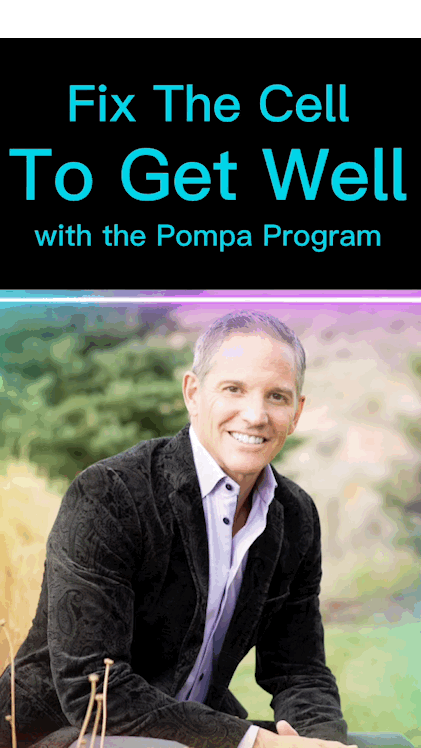February 26th, 2018 •
Comments Off on Over-exercising: How Much Exercise Is Too Much?

We’re constantly being told about the importance of keeping active and exercising on a regular basis. Of course, exercise most definitely is a crucial part of living a long and healthy life. But have you ever stopped to consider that too much exercise can actually be nearly as bad for you as not getting enough?
Without wishing to sound too dramatic, it’s definitely possible to become addicted to exercise. If you love working out (and let’s face it, working out makes you feel great, so why wouldn’t you?), it’s easy to start hitting the gym six or seven days a week without giving your body adequate time to rest and recover. As we’ll discuss later on, this can lead to all sorts of problems and health issues.
Over-exercising in Modern Society
Over-exercising is becoming more and more of an issue in today’s world, with things like social media and celebrity culture making people feel under ever increasing pressure to maintain the “perfect” body image and conform to what the media paints as “normal.”
From an early age, we learn from watching movies that overweight people are often ridiculed and presented as comic relief. But the heroines and heroes have bodies that are thinner and smaller than average. Men often have great muscle development, while woman have a perfect waistline and toned core.

The perception of an “ideal” body weight and shape, combined with the fast-paced and often-stressful world we live in, is leading many people to overdo it in the gym – and while it’s most definitely a good thing to encourage people to exercise regularly, there is a very fine balance between staying fit and taking things too far.
Here’s the truth: Whether you work out to lose weight, gain strength or simply to make yourself feel good, you will achieve none of those things if you over-exercise.
Adrenal Fatigue and Over-exercising
When you suffer from adrenal fatigue you may be having a hard time finding the energy and motivation to engage in regular exercise or any form pf physical activity. However people in the earlier stages of adrenal fatigue often love to workout, because the surge of adrenaline makes them (temporarily) feel good. But exercise is a stressor and it therefore can tax your adrenal glands. Exercising too strenuously and too much works counterproductive and prevents you from feeling better and getting healthy.
If you love to work out (almost) every day, look out for the below signs of overtraining:
When working out, your muscles get used, worked and torn. But if you don’t let them recover and those torn muscle fibres didn’t heal, your progress and will halt. Now your body can’t move forward to get stronger.
When you don’t give your body sufficient time to recuperate between workouts you will at a certain point begin to train in a weakened state. If you do that too often you will increase your chance of injuries.
Overtraining means that your body is in a “continual catabolic state”. This lowers immunity, and thus increasing your chances of becoming ill.
Usually muscle soreness lasts for one or two days after a workout. So if you’re still sore after 72-hours, this is a sign your muscles aren’t recovering. Make sure to keep your workouts in between 45 – 75 minutes at max.
Not being able to sleep is likely the result of a combination of a hormonal system overload and a nervous system. The vast majority of people sleep well after exercise, but some have have difficulty sleeping after exercising too late in the evening. If that’s the case for you, you may be reacting to the increased adrenaline and cortisol output that follow from strenuous activity. This then makes it difficult to fall asleep.
If you experience an inquenchable thirst while you increased your gym time, there’s a chance for overtraining. If your body is in a catabolic state and starts to consume its own muscle for protein this causes dehydration.
- Altered resting heart rate
A higher resting heart rate is a signal that you are not fully recovered from your workout. In my experience if your resting heart rate is 7bmp higher than normal this could indicate excessive training fatigue. So keep an eye on your resting heart rate 2 or 3 days after an intensive workout. You can measure your morning heart rate the old fashioned way with a small notebook, a pen and a stopwatch. Or you can use a heart rate monitors to help determine if you’re overtraining.
What To Do About It
Let’s be clear about something: working out is highly beneficial and should be actively encouraged. At the same time, you should also remember that it’s a fine balance between healthy exercise and flat-out overdoing it. If you pursue too much physical exercise, you will not achieve your goals – and it can actually wreak havoc on your entire body.
If you’re noticing any of the things we’ve just talked about, you probably are overdoing it and it’s time to make a few changes. It sounds obvious when you think about it, but your body really does need time to rest and recover after every workout session. If you find that you’re getting tired halfway through, it’s a surefire sign to stop and think about what you are doing.

1. Reduce the number of times a week you work out
That might seem hard at first, but it’ll be well worth it because you’ll actually be able to achieve your health and fitness goals much sooner. Your body is literally begging you for rest, so make sure you listen to what it is telling you. Aim for at least two full days of rest each week.
2. Reduce the length of each session
If you’re regularly doing cardiovascular sessions lasting 1-2 hours, you should consider cutting back a little. Ideally, each session should last for no more than 45 minutes.
3. Consider changing how you exercise
Is there something you could do that would put less stress on your body but still give you the desired results? For example, you might cut back on impact training and do more resistance or weight bearing training to build up your muscle.
4. Practice yoga
Yoga is great for the whole body. As well as helping to free your mind, yoga is also great for building lean muscles and easing away those aches and pains.
5. Try barre workouts
While extremely challenging, barre workouts are one of the best ways to build muscle. It’s perfect for those looking to get their heart rate up (but not too much!) with a low impact workout.
6. Try pilates
Developed in the early 20th century by Joseph Pilates, this low impact, low cardio workout is a very effective yet gentle way to improve strength, flexibility and balance.
7. Use adaptogenic herbs
Adaptogens such as ashwaganda, rhodiola rosea, licorice and holy basil leaf can help to balance and stimulate the adrenals.
8. Drink plenty of water
Make sure to drink sufficient water before, during and after your workout. This will minimize the risk of heat stress, allow for normal muscle function, and prevent your physical performance from decreasing due to dehydration.
Final Words
Exercise is wonderful, but like anything in life it is all about finding the right balance and deciding on a routine that works for you.
Above all, make sure you listen to what your body is telling you and don’t be afraid to make some changes when necessary. When you work out, be honest with yourself about whether you’re pushing yourself too hard, and when you know you need to rest, make sure that’s exactly what you do.
Take this advice on board and you’ll achieve much better results from your workouts – and you’ll have more energy and be healthier and happier, too.














